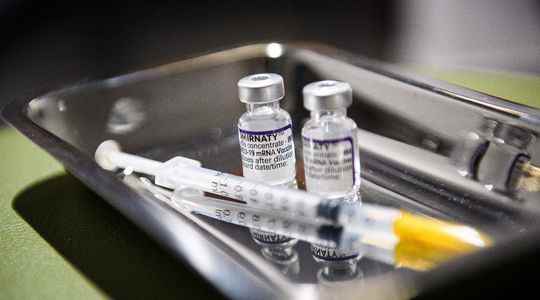Will the 7th wave take place? The question now tickles in the corridors of hospitals as much as in the cabinets of the Ministry of Health. The Covid-19 indicators of the last few weeks conclude that there is a strong trend: recovery of cases and use of rebound tests. The situation in France leads to raise the question of the end of the summer and an epidemic outbreak from the start of the school year. The circulation of the BA.4 and BA.5 sub-variants in France threatens the decline observed for several weeks.
Faced with an unabated pandemic, France and the rest of the world are continuing their policy of containing Covid-19. The United States is taking an additional step towards vaccination from 6 months. An additional crucial step in the construction of American vaccine policy. World tour of the epidemic recovery and health measures to counter it.
An eloquent figure: the contaminations have doubled, in fifteen days, according to the Ministry of Health. The number of Covid-19 screening tests has increased by 20% over the same period, assures the ministry. The various bridge weekends in May had a definite impact on the epidemic, inform the statistics of the statistics department (Drees) in a press release.
Falling to less than 18,000 daily cases at the end of May, the rate of contamination (on average over 7 days) rose to more than 30,000 on June 12 and exceeded 38,000 on Wednesday, according to data from Public Health France compiled by the Covid Tracker website. “The epidemic curve is exponential in France, it looks like a new wave which seems to be led by (the) new BA.4 and BA.5 variants of Omicron”, observed epidemiologist Antoine Flahault on Wednesday on FranceInfo. A trend shared in most Western European countries. Variant infection levels have reached their highest level in three months, in Britain and the Netherlands.
The government, for its part, is not yet talking about a wave but “remains extremely vigilant”, said its spokesperson Olivia Grégoire on Tuesday, while the exit of the regime from the state of health emergency, is scheduled for July 31. .
- A track to explain certain serious forms
The news around the pandemic is also crossed by discoveries that tell us more about the virus. French and American researchers seem to have managed to discover why some people vaccinated against Covid have nevertheless developed serious forms of the disease, even being hospitalized.
These scientists from Inserm, AP-HP and Rockefeller University in New York followed 48 patients aged 20 to 80. They highlight an immunological deficit in some of these patients without their being aware of it. Scientists have noticed that 24% of these individuals have autoantibodies neutralizing the action of type 1 interferons, proteins that constitute the first immunological barrier against viruses.
- Europe is considering a new version of the vaccine
The European Medicines Agency (EMA) announced on Wednesday the launch of the procedure for examining a modified version of the vaccine against Covid-19 from the American company, Pfizer. The new version aims to better protect against the specificities of virus variants, including Omicron. In particular, the review must determine whether the vaccine can effectively fight several variants at the same time.
It is also awaiting data on the immune response before deciding on the release of the doses. To date, the EMA has approved the use of five vaccines in Europe: messenger RNA vaccines (Pfizer, Moderna), viral vector vaccines (AstraZeneca and Johnson & Johnson) and the Novavax vaccine.
- Vaccination for toddlers in the pipes
This is a new step taken. American experts on Wednesday recommended vaccines from Moderna and Pfizer from the age of six months. The 21 members of the advisory committee have declared themselves in favor of carrying out injections in children aged six months to 4 years at Pfizer, and from six months to 5 years at Moderna. These are the last age groups not concerned by vaccination throughout the world. The dosage of these vaccines has been adapted: it is a quarter of that of adults for Moderna (25 micrograms, against 100 for adults), and a tenth for Pfizer (3 micrograms, against 30).
Based on these opinions, the American Medicines Agency (FDA), whose decisions refer to the whole globe, is now responsible for giving its official authorization. Nearly 10 million doses are already in the boxes ready to be transported across the country. The first injections could take place as early as the middle of next week, while four out of five parents do not say they want their child as soon as possible.
